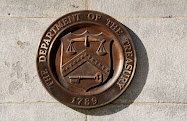Chinese entrepreneur Wang Min is delighted about Russia's
embrace of the yuan. His LED lights company can price contracts to Russian
customers in yuan rather than dollars or euros, and they can pay him in yuan.
It's win-win, he says.
Wang's plans have been transformed by the conflict in
Ukraine and the subsequent Western sanctions on Moscow that have shut Russia's
banks and many of its companies out of the dollar and euro payment systems.
His contract manufacturing business with Russia has been
small in the past, but now he's preparing to invest in warehousing there.
"We hope that next year sales in Russia can account for
10-15% of our total sales," said the businessman from China's southern
coastal province of Guangdong, whose annual revenue of about US$20 million
mainly comes from Africa and South America.
Wang is seeking to capitalize on a rapid "yuanization"
of Russia's economy this year as the isolated country seeks financial security
from Asian powerhouse China. He sees a win-win situation in Chinese exporters
reducing their currency risks and payment becoming more convenient for Russian
buyers.
While the yuan, or renminbi, has been making gradual inroads
into Russia for years, the crawl has turned into a sprint in the past nine months
as the currency has swept into the country's markets and trade flows, according
to a Reuters review of data and interviews with 10 business and finance
players.
Russia's financial shift eastwards could boost cross-border
commerce, present a growing economic counterweight to the dollar and limit
Western efforts to pressure Moscow by economic means.
Total transactions in the yuan-rouble pair on the Moscow
Exchange ballooned to an average of almost 9 billion yuan (US$1.25 billion) a
day last month, exchange data analyzed by Reuters showed. Previously, they
rarely exceeded 1 billion yuan in an entire week.
"What happened was that it became suddenly very risky
and expensive to keep traditional currencies - dollar, euro, British
pounds," said Andrei Akopian, Managing Director of Moscow-based investment
firm Caderus Capital, citing the potential danger of a bank that keeps foreign
currency deposits being sanctioned.
"Everybody was motivated and even pushed towards the
rouble or other currencies including, and first of all, the renminbi."
Indeed, yuan-rouble trading totalled 185 billion yuan in
October, more than 80 times the level seen in February when Russia launched
what it refers to as a special military operation in Ukraine near the end of
the month, according to exchange data.
The surge of interest has seen the yuan's share of the
currency market jump to 40-45% from less than 1% at the start of the year, said
Dmitry Piskulov, international projects head at the Moscow Exchange's
foreign-exchange market department.
By comparison, the dollar/rouble pair, which commanded more
than 80% of trading volumes on the Russian market in January, has seen its
share drop to about 40% as of October, according to exchange data and the
central bank.
Until April, Russia didn't even make the top 15 list of
countries using the yuan outside mainland China, in terms of the value of
inbound and outbound flows, according to data from global financial networking
system SWIFT.
It has since jumped to No. 4, lagging only Hong Kong, the city's
former colonial ruler Britain and Singapore.
To put this in a global context, though, the dollar and euro
are still by far the dominant currencies, representing more than 42% and 35% of
flows respectively as of September this year. The yuan has risen to almost 2.5%
from below 2% two years earlier.
Wang's business optimism is echoed by Shen Muhui, who heads
a trade group for small exporters to Russia in neighbouring Fujian province. He
said more and more Russian buyers were opening yuan accounts and settling
transactions directly in the Chinese currency, which he said was a big
advantage.
"The Russia-Ukraine conflict has brought opportunities
for Chinese businessman," said Shen, adding that his association had
received many inquiries from Chinese companies interested in doing business in
Russia.
It's not only Chinese companies, or small companies, joining
the yuan train. Seven Russian corporate giants, including Rusal, Rosneft and
Polyus, have raised a total of 42 billion yuan in bonds on the Russian market,
according to Reuters calculations, and the list could grow with No.1 lender
Sberbank and oil firm Gazpromneft saying they're also considering renminbi
debt.
Aluminium producer Rusal, which buys raw materials from
China and then sells a large chunk of its finished goods there, told Reuters it
had stepped up the share of yuan used in those purchases and sales this year,
and that the share would continue to rise, though it declined to provide a
detailed breakdown.
While President Vladimir Putin has long sought to reduce
Russia's reliance on the dollar, geopolitics has turbo-charged this trend in
2022.
China, the world's No. 2 economy, is the biggest global
power not to join economic sanctions against Russia. Indeed, Putin and Chinese
President Xi Jinping sealed a no limits partnership in February, weeks
before Moscow launched what it describes as a "special military
operation" in Ukraine.
The yuan comprised about 19% of Russia's trade settlements
with China in 2021 versus the dollar's 49% share, Andrey Melnikov, deputy
director at international cooperation department at the Russian central bank,
said in September.
While 2022 figures haven't been published yet, the Chinese
currency is gaining ground, according to Melnikov, who told a conference that
demand for yuan liquidity had risen sharply due to reduced access to
traditional payment methods and the freezing of its overseas gold and foreign
exchange reserves.
The central bank declined to comment for this article.
Bank governor Elvira Nabiullina is tracking the growth,
telling lawmakers this month that the influx of yuan illustrated a transformation
of the currency composition of our economy.
Regulators are also aware of potential perils, such as a
disparity between a growing number of yuan-held current accounts and deposits
of the currency, with yuan-denominated lending only starting to develop.
The central bank has said lenders should seek to reduce the
growing risks of yuanization of their balance sheets - or gaps between yuan
assets and liabilities - by increasing payments in yuan for imports, investing
in yuan-denominated securities or using yuan in trade transactions with other
countries.
Regulators do not plan to limit yuan usage now and may
encourage banks to use more by relaxing provisioning requirements for the
currency while tightening them for dollars and euros, Elizaveta Danilova,
director at the central bank's financial stability department, told a
conference this month.















